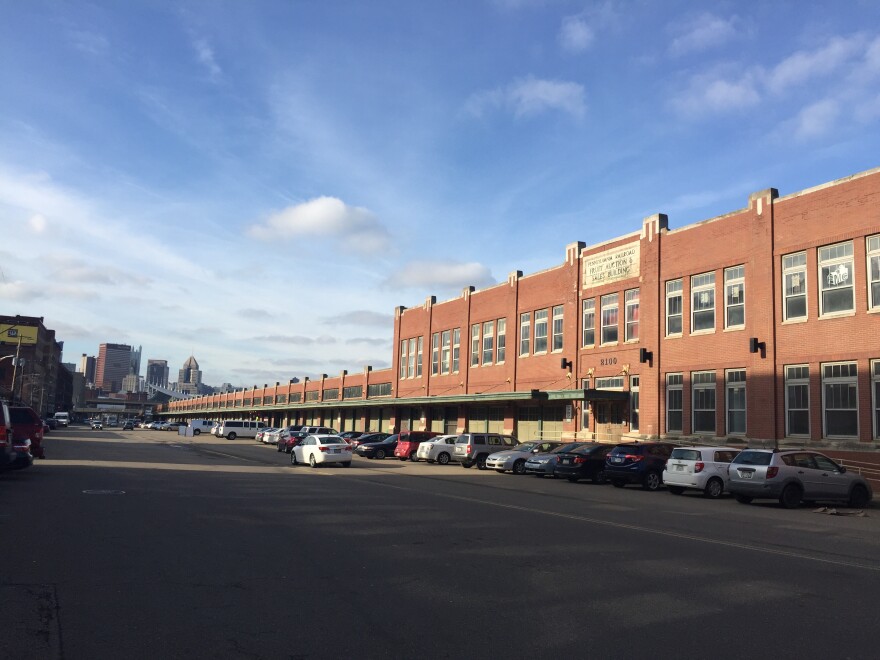Construction on the Produce Terminal in Pittsburgh’s Strip District neighborhood is expected to begin in March. The work won approval from the board of Pittsburgh’s Urban Redevelopment Authority Thursday.
“It’s been a long journey for my company and me personally and I’m just very thrilled that we finally actually get to build what we’ve been dreaming for so long,” said Pamela Austin of McCaffery Interests.
The development plan must still undergo a final URA staff review of design, finance, and details about how women- and minority-owned businesses will participate in the $62 million project. That review is underway and URA officials say they are confident the plan will meet muster.
McCaffery Interests holds a 99-year lease on the terminal, an option created after officials and residents raised concerns about losing city ownership of the historic building.
Plans for the Produce Terminal include a market, space for local and regional businesses, restaurants, and possibly smaller versions of a drug store or hardware store. Current dock-level walks along the building’s front Street will be expanded into broader sidewalks and connect to Smallman Street, itself slated for a renovation. The city will invest $9 million to install new lighting, a new traffic pattern with bike lanes, and build out street-level plazas. Two new passageways at 17th Street and 18th Street will connect the Strip District with the Allegheny Riverfront. A third passageway at 20th Street will terminate at Railroad Street.
“I think it’s going to do amazing things for the community. It’s going to connect the old and the new, the passageways are going to be this opportunity for everyone to traverse back and forth to the river, to Penn Avenue, to new housing,” Austin said. “It’s becoming an employment center, there’s all kinds of new workers and we’re going to be able to provide them new places to eat and shop.”
It’s been nearly five years since McCaffery Interests started its quest to renovate the Produce Terminal. Buncher Company formerly held development rights for the building, and their plans included demolition of roughly a third of the building. In 2014, the URA voted to pay Buncher $640,000 to walk away.
Officially termed the Pennsylvania Railroad Fruit Auction & Sales Building, the Produce Terminal fed the activity in the Strip District for decades. Built in 1929, the building allowed rail freight to be unloaded and sold to wholesale merchants in the neighborhood and from all over the city. It stretches for five city blocks, and is described in an application for historic nomination as “the focal point of the Strip's wholesale district,” noting that it’s “a landmark for its shear [sic] size."
Construction is expected to be completed in July 2020.
Ahead of Thursday’s vote, Jodi Hirsh was welcomed as a new board member as Cheryl Hall-Russell’s term expired. New officers were also elected: Sam Williamson as chair, state Representative Ed Gainey as vice chair, and City Councilor Dan Lavelle and Hirsh as co-treasurers.




